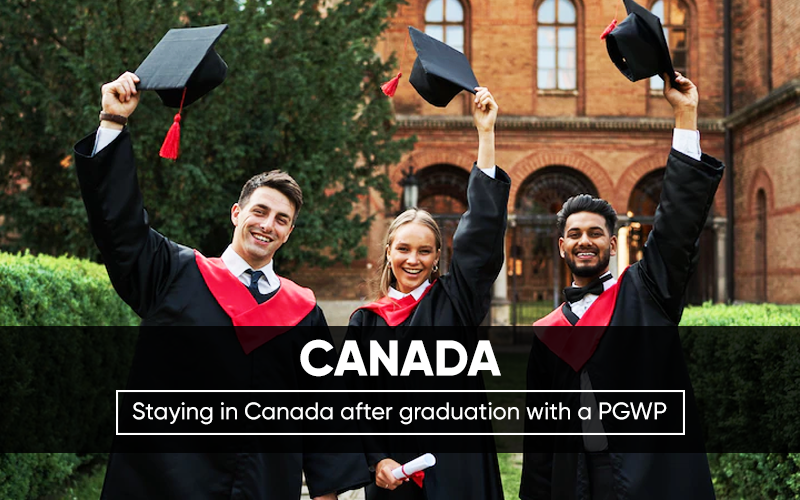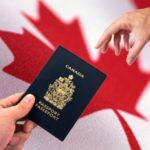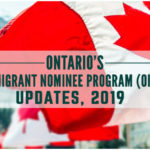One of the options available to overseas students who want to stay in Canada and start establishing a life here is to apply for a Post-Graduation Work Permit
When international students travel from their home countries to study at a Canadian-approved learning institution, they bring a bright, unique, and fresh viewpoint to the academic environment in Canada (DLI).
Canada takes great satisfaction in being a top choice for overseas students wishing to advance their education and lifestyles.
Beyond their formal education, the majority of overseas students have shown a wish to remain in Canada after graduation, which is another source of pride for the country. In reality, a study conducted in 2022 by the Canadian Bureau of International Education (CBIE) found that "59.4% of respondents" intended to settle permanently in Canada following graduation.
For international students, Canada's Post-Graduation Work Permit (PGWP) program is a step in the right direction. Through this program, qualified DLI graduates can work for any Canadian employer of their choice without having a job offer at the time of application for a maximum three-year open work permit. The length of a permit will depend on the length of the educational programme the applicant has graduated from, even though this scheme provides for permits to last up to three years.
PGWP eligibility criteria
In order to be eligible for the PGWP, an applicant must:
• Completed studies at an eligible DLI in an academic, vocational, or professional training program (minimum eight months in length) that leads to a degree, diploma, or certificate
• Received a transcript and an official letter confirming they have met the requirements to complete their program
• Held full-time student status in Canada during every academic session of the program or programs of study completed and included as part of their post-graduation work permit application (note below)
• Graduated from a public post-secondary institution, such as a college, a trade or technical school, a university, CEGEP (in Quebec), a private post-secondary school (in Quebec) that operates under the same rules as public schools in Quebec; a private secondary or post-secondary school (in Quebec) that offers qualifying programs of 900 hours or longer and results in the issuance of a diplôme d’études professionnelles (DEP) or an attestation de spécialisation professionnelle (ASP); or a Canadian private school that can award degrees under provincial law (but only if the student was enrolled in a study program that leads to a degree as authorized by the province)
Note regarding Quebec: Depending on the type of diploma awarded, graduates of vocational and professional training programs in Quebec must also satisfy extra PGWP requirements set forth by IRCC.
Those who have started or will start a programme between spring 2020 and summer 2022, graduates whose programme was already underway in March 2020, or international students who took a leave of absence from their studies in their final academic session may be exempt from the "full-time student status" requirement.
Distance learning and PGWP eligibility
Due to the coronavirus epidemic, distant learning students at a DLI may still be qualified for a PGWP. There are many date-specific exclusions to the standard eligibility requirements outlined by Immigration, Refugees, and Citizenship Canada, provided that all other conditions are satisfied (IRCC). These are what they are:
• August 31st, 2022: International students who study online from abroad or submit a study permit application before this date can complete all their studies online and remain PGWP-eligible
• September 1st, 2023: Starting from this date, study time completed abroad “will be deducted from the length of international student’s PGWP regardless of when the international student began their studies”
PGWP application process
All PGWP candidates have six months (180 days) from the day they receive their official transcript and letter attesting to programme completion to submit their application.
Once you have the required paperwork, which must be submitted with your application, the process is rather straightforward.
The website of the Canadian government lists the following documents as being a large portion of the applicant's essential duties:
• A degree or diploma
• An official letter from your school
• An official transcript, or a copy of your transcript from your school’s website
Note: When an application is received, IRCC may require more documentation.
After completing this stage, applicants can move on to submit their PGWP application, either online or on paper, as needed. Depending on whether the PGWP candidate is applying from inside or outside of Canada, the application process will differ.
Note that applicants must demonstrate that they either have a current, valid study permit, have held one in the past, or have been granted permission to study in Canada without one. If a candidate's present study permit is about to expire, they can either leave Canada and apply for a PGWP from overseas or apply for a visiting record to stay in Canada longer.
Key information regarding the PGWP
• The PGWP program requires international graduates to submit two key documents alongside their application: a letter and an official transcript confirming completion of a program of study at a DLI
• The length of a PWGP’s validity is determined by the length of the applicant’s educational program. According to IRCC guidelines:
If the completed program lasted:
• Under eight months: Applicant is not eligible for a PGWP
• More than eight months but less than two years: The validity of the applicant’s PGWP will match program length (16-month program equals 16-month PGWP)
• Over two years: The validity of the applicant’s PGWP will be three years
Additionally, if a candidate has finished more than one programme (a minimum of eight-month programme), they could be able to combine the PGWPs they have earned.
How a PGWP might quicken the process of obtaining permanent residency
Holders of PGWPs position themselves favourably for prospective applications for permanent residency (PR) in Canada. This is so that qualified candidates can gain professional work experience through PGWPs. To be qualified to apply for a PR program in Canada, "a PGWP holder needs to obtain one year of professional work experience in a National Occupational Classification (NOC) code of 0, A, or B."
Because several of Canada's immigration systems favour PR applicants who have previously studied and/or worked here, obtaining a PGWP is useful when a PR application is evaluated.
At Immigration Experts, we guide your clients with the best possibilities of moving to Australia (https://www.immigrationxperts.com/australia-pr-points-calculator/) with regard to their professional background.
To Stay Updated on Australia Immigration News, Subscribe to Immigration Experts
NEWSLETTER: https://www.immigrationxperts.com/newsletter/
Fill up our Free Evaluation Form and take the initial step toward your Visa and Immigration Process. We are available for ONLINE CONSULTATION!
Contact Immigration Experts for a FREE Points-Based Assessment of your profile: Drop us an email at: info@immigrationxperts.com
Give us a call at: +91-9999467676, 0120-6618011, 0120-6618123
Book your appointment with our experienced immigration counselors and solve all your immigration-related queries.
Achieve your Immigration dreams with Immigration Experts






